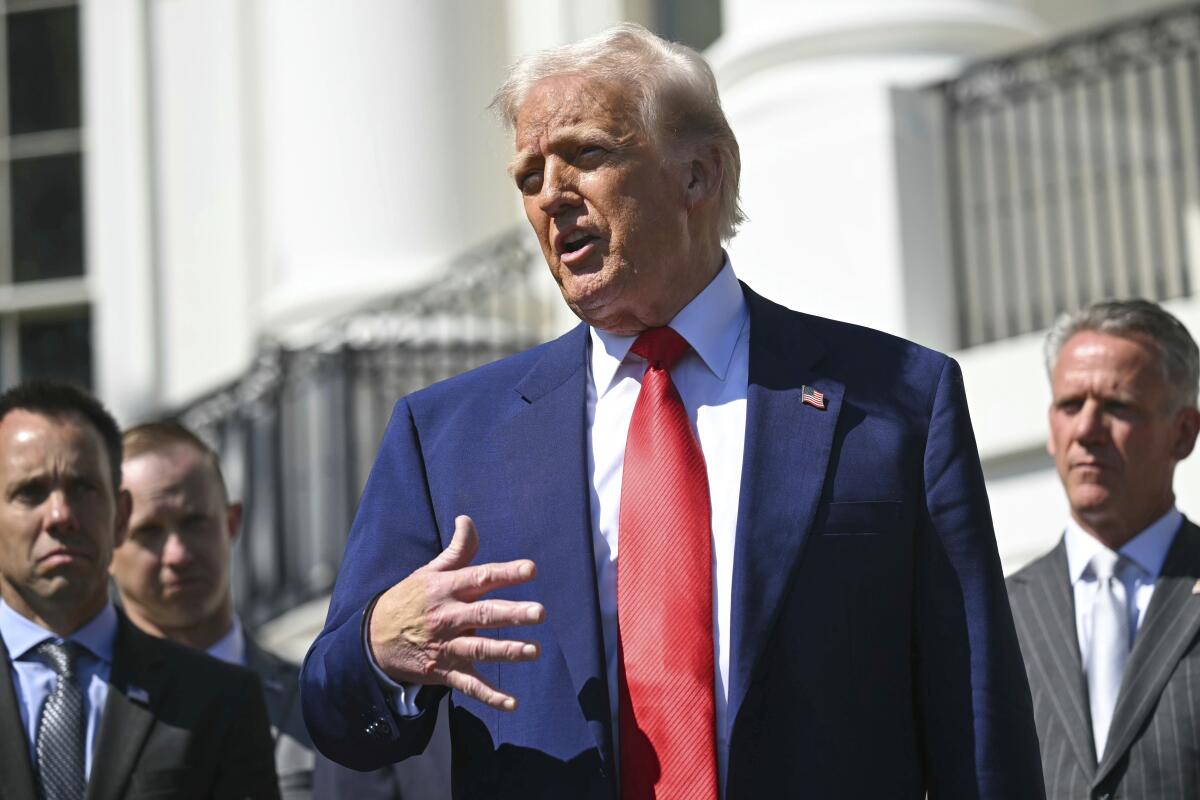Executive Summary
- Studio executives at the Milken Institute Global Conference prioritize reforming California's film and TV incentives over concerns about Trump's proposed tariffs.
- The executives cited the uncertainty of California's capped and lottery-based tax incentive system as a major deterrent for productions.
- Despite the incentive issues, Hollywood remains desirable due to its talent pool, infrastructure, and the creative benefits of filming locally.
Event Overview
Amidst discussions surrounding President Trump's proposal to impose tariffs on foreign-produced films, studio executives at the Milken Institute Global Conference in Beverly Hills addressed the challenges facing the film industry. The consensus among the executives was that reforming California's film and television incentives is a more pressing issue than the potential tariffs. They emphasized that the uncertainty surrounding California's tax credit system makes it difficult for studios to plan productions in the state, leading them to consider locations with more reliable incentives, such as Atlanta and Canada. However, the executives also acknowledged the unique advantages of filming in California, including its deep talent pool and existing infrastructure.
Media Coverage Comparison
| Source | Key Angle / Focus | Unique Details Mentioned | Tone |
|---|---|---|---|
| The Hollywood Reporter | California's incentive program is a more critical issue than Trump's proposed tariffs. | Mentions Deborah Cahn, creator of 'The Diplomat,' discussing the benefits of filming in California versus overseas locations, particularly regarding talent and resources. | Neutral, informative |
| Variety | California's incentive program and the uncertainty it creates are key concerns for studio executives. | Notes Gavin Newsom's proposed $7.5 billion federal tax incentive to help the film industry. Mentions that Sony's 'The Woman King' was shot in South Africa for creative reasons, regardless of tax incentives. | Neutral, informative |
Key Details & Data Points
- What: Studio executives discussed the challenges of filming in California due to its uncertain tax incentive program and the potential impact of Trump's proposed tariffs on foreign-produced films.
- Who: Ravi Ahuja (Sony Pictures Entertainment), Casey Bloys (HBO and Max content), Mike Hopkins (Prime Video and Amazon MGM Studios), Pearlena Igbokwe (NBC Entertainment and Peacock Scripted), Deborah Cahn (The Diplomat creator), Gavin Newsom (California Governor).
- When: Discussions took place on May 7, 2025, at the Milken Institute Global Conference.
- Where: The Milken Institute Global Conference in Beverly Hills, California.
Key Statistics:
- Key statistic 1: Approximately 10% (typical profit margin for a studio) (Ahuja mentioned margins are modest)
- Key statistic 2: $7.5 billion (proposed federal tax incentive by Gavin Newsom) (to help the film industry)
- Key statistic 3: 100% (Trump's proposed tariff on films produced outside the US) (Intended to encourage domestic film production)
Analysis & Context
The studio executives' emphasis on California's production incentives reveals a critical issue facing the entertainment industry. While Trump's proposed tariffs on foreign-produced films have garnered attention, the executives believe that addressing the uncertainty and limitations of California's tax credit system is a more immediate and impactful step. The fact that California's incentive program operates as a lottery, with no guarantee of receiving tax breaks, makes it difficult for studios to plan long-term productions. This uncertainty pushes studios to consider locations with more reliable incentives, potentially leading to a loss of jobs and economic activity for California. Despite these challenges, the executives acknowledge the unique benefits of filming in California, including its skilled workforce and established infrastructure. The resolution of these problems is based in Newsom's response to collaborate with the president, but the effectiveness remains to be determined.
Notable Quotes
In terms of production leaving here, it’s almost more a California issue, honestly, than a U.S. issue.
The facilities here, and the talent pool here [in Los Angeles], remains unmatched... This is always my first choice. But if you need Buckingham Palace, you gotta go there.
It’s not that we’re taking money and giving to Tom Cruise or somebody... It actually does drive the economy.
Conclusion
While concerns persist regarding potential tariffs on foreign films and their impact on international production, the immediate priority for Hollywood executives lies in stabilizing and enhancing California's film production incentives. The uncertainty surrounding the state's tax credit system hinders long-term production planning, potentially resulting in job losses and decreased economic activity. However, California's skilled workforce, established infrastructure, and diverse locations remain strong assets. To ensure the entertainment industry's continued success in California, efforts to reform and expand the incentive program are crucial, fostering a more predictable and competitive environment. This includes addressing the oversubscription of the existing program and considering refundable tax credits. By increasing the tax credit up to 35% of qualified expenditures and expanding the types of eligible productions, California can more effectively compete with other states and countries. Furthermore, the state can leverage the film industry's broader economic impact, including its support for various service industries and its contribution to tourism, to justify investments in production incentives. Successfully retaining and attracting film productions will not only preserve jobs and stimulate economic activity but also reinforce California's position as the heart of the entertainment industry.
Disclaimer: This article was generated by an AI system that synthesizes information from multiple news sources. While efforts are made to ensure accuracy and objectivity, reporting nuances, potential biases, or errors from original sources may be reflected. The information presented here is for informational purposes and should be verified with primary sources, especially for critical decisions.









